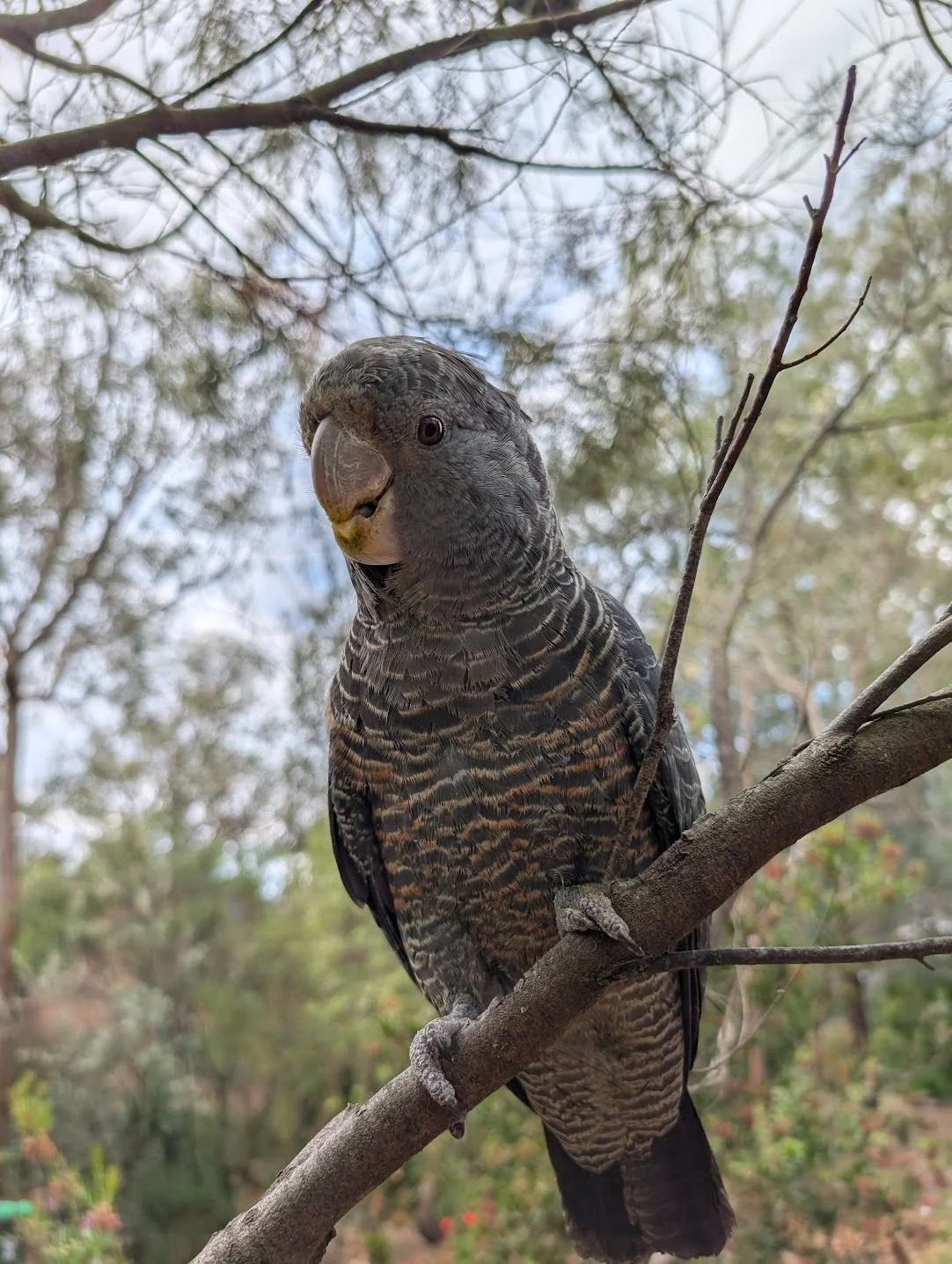Environment
Living with native animals
The greenspace of Wybalena Grove provides a refuge for native birds, animals and plants. The large trees give birds a vantage point to avoid predators. The connection of plantations make for safe native animal routes. Urban biodiversity benefits from these and other controllable practices.
Factors that work against urban biodiversity include dogs, cats being let roam at any time and especially at night, and the availabilty of seed feeders, food scraps, and recyclables that can attract unwanted species such as sparrows, starlings, common mynas, rats and mice. Wybalena’s rules and ACT legislation require animals to be contained to the unit area and only allowed on the common property when under the control of a responsible person.
Possums and sugar gliders
Possum in the roof? Troubled by possums? Protecting my garden? The ACT Government provides some answers to these questions. A design for a possum box can be found at the Wildlife Rescue South Coast website.
All possums are protected in the ACT under the Nature Conservation Act (1980) and it is illegal for an unauthorised person to trap or harm them. Licensed possum removalists can assist with blocking up access points once the animals are safely evicted. Possums cannot successfully be relocated to another area as they are territorial animals likely to die from stress or being killed or injured by other possums.
Feeding possums is inadvisable as it can lead to artificially high population densities and consequent fighting and injury, food dependence, and possibly dietry imbalance. It will not necessarily stop them eating your garden plants.
The situation with sugar gliders is slightly more complicated. Licensed possum removalists would need to get in contact with ACT Licensing to apply for a special permission to handle/trap sugar gliders in residences’ roofs/walls. For sugar gliders, like possums and other native wildlife, one needs a licence to handle other than when rescuing fauna in accordance with the Nature Conservation Act 2014.
The other option is to contact ACT Wildlife, who can provide contact details for a contractor who can assist with ‘evicting’ (not trapping/handling) a sugar glider/family of gliders, in turn ensuring that all points of ingress/egress are blocked off, once they are confident that all gliders are out.
Termites
Peter Campbell’s Notes on Termites is a comprehensive overview of what to look for and what to do if you have termites.
For further information on termites, see CSIRO's book Termites in the Canberra Region and CSIRO's Managing Termites factsheet.
Weeds
There are many plants that are either prohibited from sale in the ACT or other otherwise listed as invasive weeds, owing to their ability to spread out of gardens and into native bushland. Residents are asked to avoid planting these on their private property and to remove particularly problematic species if they are already in existence.
By doing this we can all help preserve the local environment. Likely garden escapees are described in the ACT Government's Weed Swap pamphlet. A list of pest plants in the ACT is contained in the Declaration of Pest Plants. An article on pest plants can be found in the August 2015 Community Update (4th item).
Photovoltaic installation
Wybalena Grove installed a 9.2kW solar electricity generating system in September 2012. This supplies the grid with about the same amount of electricity during the day as we consume at night for all our lighting of paths and parking areas. We receive a gross feed-in tariff till 2032 resulting in substantially lower electricity costs and our Owners Corporation levies are consequently less than they would otherwise be.
The bar chart shows the history of our net electricity consumption from 2007 to 2014. Until 2007 we consumed about 26MWh for lighting the paths and parking areas. Our net electricity consumption has been brought to almost zero, about half from the installation of more efficient globes through 2008 and about half by matching our nighttime consumption with daytime solar production.
Water conservation
Water conservation measures are now in effect in the Australian Capital Territory. These measures are enforceable and breach of the measures may result in fines. For the official statement see Icon Water’s Permanent Water Conservation Measures.
No variations to the exemptions set in the above document will be permitted unless customers can demonstrate serious detriment from the application of the Scheme of Water Conservation Measures or a particular stage of restrictions. ACTEW reserves the right to vary or revoke exemptions at any time.
Energy efficient unit modifications
A number of unit owners in Wybalena Grove have made modifications to their houses to improve thermal performance and energy efficiency:
Draft exclusion.
Window insulation, double glazing, and curtain modifications.
Ceiling, wall, and underfloor insulation.
Zoning.
Convection and cross flow ventilation.
Solar hot water.
Electricity generation with photovoltaic panels.
The ACT Government Climate Choices website has tips about improving the energy efficiency of your house along with information about home energy government programs.
Articles
Do you have expertise or observations on the birds, animals, or plants at Wybalena Grove that you would like to share? If so, please contact the website coordinator.
Image credit
Gang Gang image courtesy of Michael Jensma.
